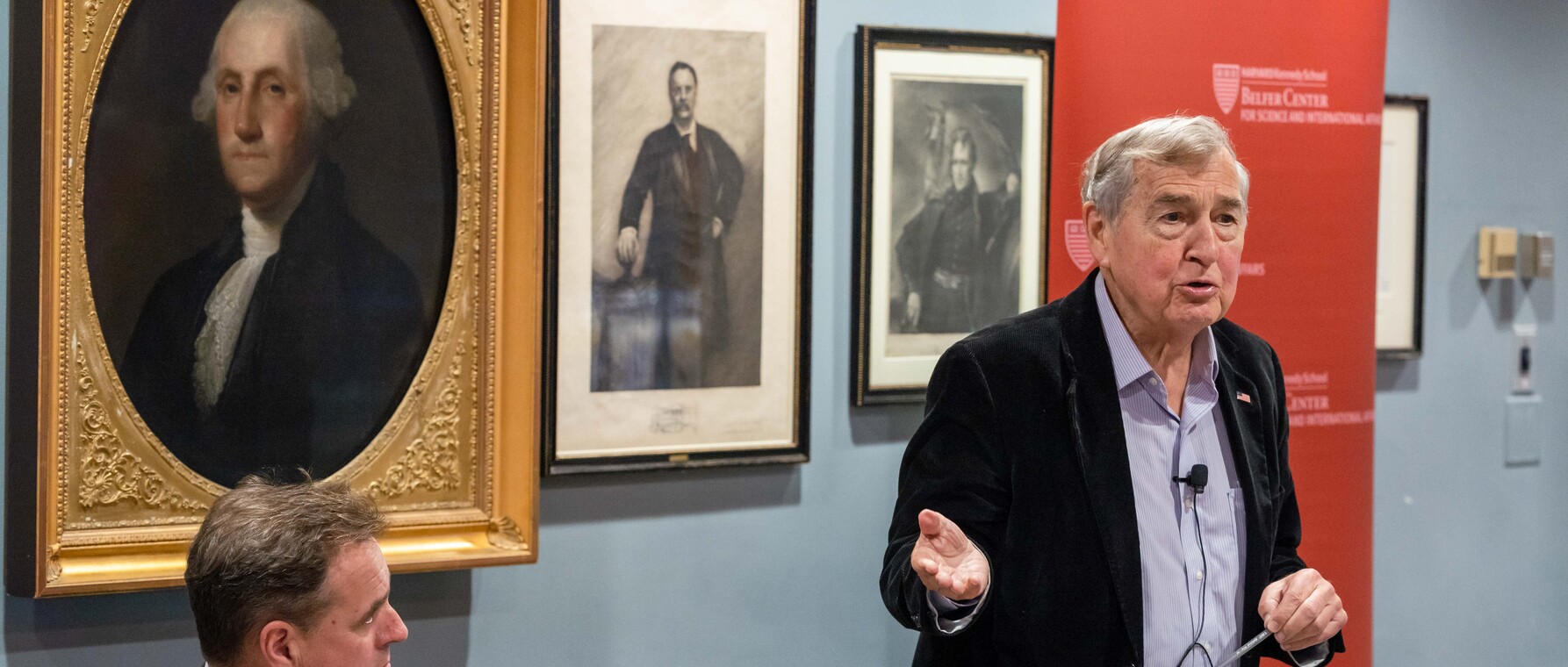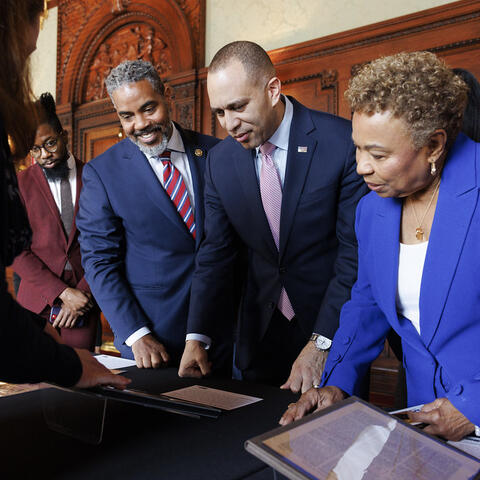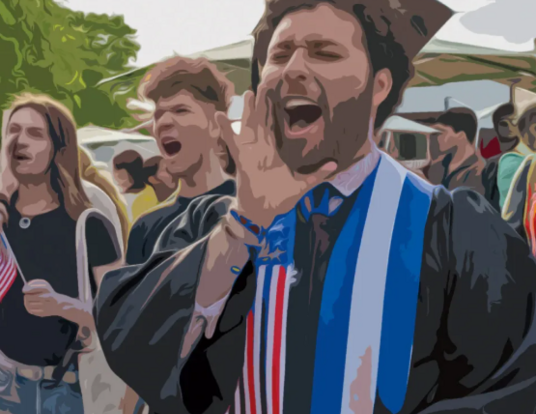Treading Thoughtfully around Thucydides’ Trap
Harvard Griffin GSAS Voices: Graham Allison, PhD ’68

Graham Allison is the Douglas Dillon Professor of Government at Harvard Kennedy School, where he previously directed the Belfer Center for Science and International Affairs. He discusses his research on the rise of China, how he came to study conflict and statecraft, and a long-lasting relationship he formed while at Harvard Griffin GSAS.
A Waking Giant
Napoleon said, “Let China sleep; when she wakes she will shake the world.” Well, China is awake, and the world is shaking.
The idea of a country that could be as powerful as we are is hard for Americans to get our heads around, especially given that we’ve been the global leader since World War II. In my book, Destined for War, I coined the term “Thucydides Trap” to make vivid an insight from the ancient Greek historian. When a rising power like China threatens to displace a ruling power like the United States, the typical outcome is war. My book reviews 16 cases in which we saw this rivalry in the past 500 years. In most—12 to be exact—but not all of them, there was war. So to say that a violent conflict between the United States and China is inevitable would be wrong based on the historical record. But to say that it has happened more often than not is correct.
The purpose of the book is not to be fatalistic. It’s to point out the structural realities that make keeping the peace so challenging today. In the last chapter, “12 Clues for Peace,” I examine the instances when war was avoided. I also explore the times when people tried and failed to avoid war in order to consider what they might have done differently. For example, during the Cold War, leaders developed a strategy that allowed ruthless competition but avoided “hot” war. They used diplomacy and statecraft to compete vigorously in a multidecade rivalry. After four decades, the Soviet Union collapsed.
I think a similar strategy could work for the United States and China. If they engage in peaceful competition in the coming decades, they might keep themselves from falling into the Thucydides Trap.
Kissinger’s Longest Student
I concentrated in history as an undergraduate here at Harvard. Then I studied mainly philosophy at Oxford. I was a student there during the Cuban missile crisis, the most dangerous moment in recorded history. As a result, I became interested in the possibility of nuclear war and the statecraft needed to avoid it.
When I came back to Harvard, I became a PhD student in the Department of Government. At the beginning of my first term, I signed up for courses and was told by the registrar to have my choices approved by Professor Henry Kissinger. I have been his student ever since. I came to know him well and was a course assistant for one of his classes. He and I have written things together. I still speak with him on Zoom every other week.
Just a month ago, we celebrated Henry’s 100th birthday. I told him we all admire him not just for his many contributions, but also as a pioneer in expanding our concept of a meaningful life. His intellect remains extremely sharp. He’s currently fascinated by artificial intelligence. (How can somebody at the age of 100 still be such an eager learner?) Had it not been for my experience at Harvard Griffin GSAS, I never would have had him as an advisor, and I would not have been introduced at his birthday party as his longest continuing student.
Get the Latest Updates
Join Our Newsletter
Subscribe to Colloquy Podcast
Simplecast





